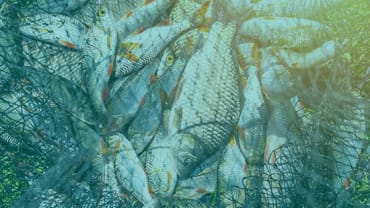The referendum on the UK's continued membership of the EU this Thursday promises to have far reaching consequences, and it could have a particular significance for the UK fishing industry.
On joining the EU in 1972 the UK became subject to the Common Fisheries Policy (CFP), which embodied the principle of equal access to the territorial waters of Member States, and ultimately a system of community management of fishery resources and conservation measures. The EU, rather than individual Member States, negotiate treaties with third countries for access to EU territorial waters and vice versa. Each year the Council of Ministers establishes total allowable catches for the main stocks in EU waters and divides them into quotas allocated to each member state. Freedom of movement within the EU means that UK quotas are also held by nationals of other EU member states exercising their right of establishment in the UK.
Since its establishment the CFP has proven to be controversial. The principle of equal access has long been considered by those in the industry to disproportionately benefit other nations to the disadvantage of the UK. Common complaints from UK fisherman about the policy have included:
- Lack of regional control;
- failure to take account of local factors in determining policy;
- 'quota hopping';
- excessive bureaucracy and red tape;
- short term thinking; and
- failure to prioritise UK fishing interests against other political priorities.
While recent reforms of the CFP seek to address certain of these issues, many in the industry believe that more reform is still needed.
Fifty years ago there were no quotas, limited regulation and the UK controlled access to its own waters. There are recollections of huge catches, vessels coming into Peterhead so laden that water lapped the deck.
However the seascape has since changed.
Stocks of fish came under pressure, the catching capacity of fleets increased and territorial waters were extended by other coastal countries excluding fishermen from historic fishing grounds.
Regardless of the vote on 23 June there will be no return to this free for all, as there is now recognition of the need for sustainability and conservation for the long term viability of the industry. The interests of those in the processing and support sectors and the impact on markets for fisheries products have to be taken into account in the overall assessment of what is best for the industry as a whole. We live in an era of global marine regulation deriving not only from the EU but international treaties and conventions.
The fishing industry throws up some unique challenges. Fish do not hold passports and do not respect borders. It is clear that regulation and management of fishery resources is necessary and that international cooperation is essential. The question for the UK fishing industry is straightforward. Can that be better delivered by remaining within the EU and through further refinement and development of the CFP, or by leaving and enabling the UK Government to deal with that management and regulation? The answer however is far from straightforward.
If there is a leave vote on Thursday the UK would in due course cease to be subject to the CFP and the EU quota system. Fish stocks within the UK's territorial waters would be under UK control and the UK would determine conservation measures and catch limits. The UK would negotiate its own arrangements with the EU and third countries over mutual access to fisheries, against the backdrop of international treaties and conventions. This would be a huge task and not without challenges. In this area, in common with many others, it is impossible to predict what the terms of the UK's continuing relationship with the EU and third countries might look like.
Lobbying and negotiation to influence and shape policies affecting the fishing industry will continue to be vital regardless of the outcome. There will remain the inevitable tensions between scientific advice, industry demands and competing national priorities regardless of whether the forum is Brussels or elsewhere.









